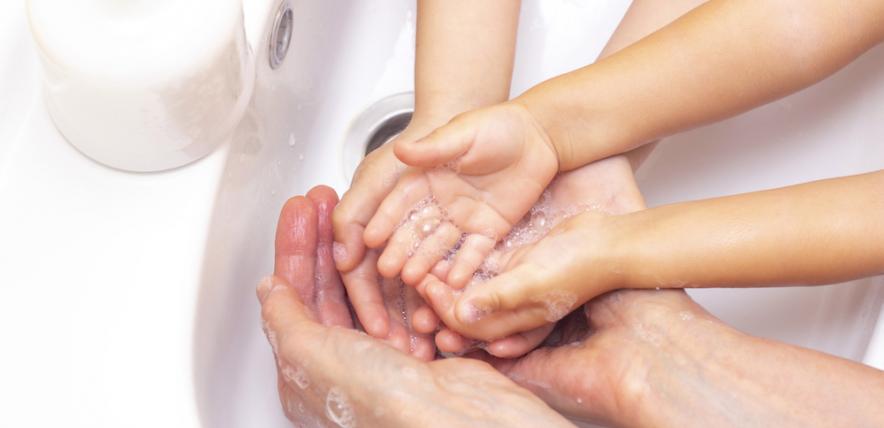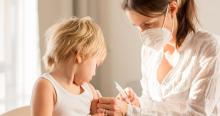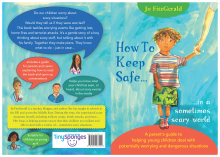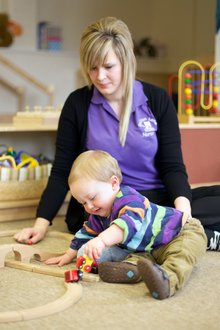After more than a year of increased handwashing during the pandemic, children and parents alike are struggling with the drying effects on their hands. Here, the British Skin Foundation shares some advice about protecting children's hands from drying out, particularly if they have eczema.
Simply washing your hands with soap and running water or alcohol-based sanitiser for 20 seconds is enough to kill the coronavirus when it is on the skin. This is an easy but vital step in the fight against Covid-19 and one which we have all become well accustomed to.
But while this is simple and easy enough to do, under current recommendations, both parents and children need to wash their hands very many times each day.
At a minimum, children in childcare and Reception should wash their hands:
- when they arrive at the setting for the day
- when they return after a break
- when they change rooms
- before and after eating
- after using the bathroom
All this handwashing can take its toll on the skin on our hands - and the need for this repeated washing is unlikely to change any time soon, even as vaccines become available and guidelines are eventually relaxed.
The Department for Education’s guidelines state: “Regular and thorough hand cleaning is needed for the foreseeable future.”
So how can we take care of children’s skin while still maintaining those important hygiene standards?
Take the time to dry
Dr Mary Sommerlad, consultant dermatologist and spokesperson at the British Skin Foundation, advises that ensuring that hands are properly dried after washing is key.
This includes the backs of hands and in between fingers, which we often forget!
“Water left on the skin can irritate,” she says.
Keep moisturised
A fragrance-free, cream-based moisturiser can also help.
“Ideally, look for preparations that contains ingredients to restore and maintain a healthy skin barrier, such as ceramides, niacinamide, glycerin and shea butter,” she suggests.
For an extra moisturising treat, Mary recommends applying a moisturiser with urea before going to bed to help soften the skin after a day of frequent hand washing.
Eczema in children and Covid-19
For some children, the skin’s reaction to increased hand-washing is more than just the normal irritation.
Atopic eczema or dermatitis is a common cause of itchy, dry and cracked skin - and it’s particularly common in young children, with many developing symptoms before they are 12 months old.
Last year, the British Skin Foundation surveyed 250 parents of young children about the effect of the pandemic on their skin.
They found that 56% of children were experiencing skin issues associated with their hands.
One in four children had symptoms of hand eczema - a significant increase from the one in five that previously experienced eczema at some stage of childhood - and 17% were suffering with cracked skin. Worryingly 6% of children were experiencing the pain of bleeding hands.
For those with eczema, frequent hand washing and sanitising can cause even worse dryness and irritation.
“Foaming handwashes, even if mild, can irritate and weaken the skin barrier, leading to inflammation and eventually triggering eczema,” Mary explains.
But more frequent hand-washing is not the only reason that you might be seeing more staff and children suffering with dry and cracked skin at the moment.
“Stress can also exacerbate eczema,” Mary adds. “Children, no matter how young they are, can absorb any stressors around them and with all the anxiety caused by Covid-19, alongside a change in their routine, will also exacerbate eczema.”
Make a care plan
To help support children suffering with eczema on their hands, work with your child's nursery, childminder or school to develop a plan.
“The document should be formulated between parents and the early years setting and should outline how and when moisturisers should be applied to the child’s skin,” Mary says.
For example, children should apply moisturiser to their hands after each wash.
Mary recommends that children with eczema should have moisturised applied head-to-toe as well at least once during a full day - ideally after lunch.
Parents should supply moisturisers labelled with the child’s full name and details of when to apply it to the early years setting, nursery or childminder.
If the eczema is going out of control then you may need to contact your GP.
Find out more
Download a copy of the British Skin Foundation’s hand health activity pack.
Or visit britishskinfoundation.org.uk for more advice and information on skin health.
This article first appeared in Under 5 magazine in March 2021
Read next:
Rapid lateral flow tests for households of primary school children - what parents need to know









